Vertical Suction Pump V2.0
Applicable models: myCobot 280, myPalletizer 260, mechArm 270
Product image
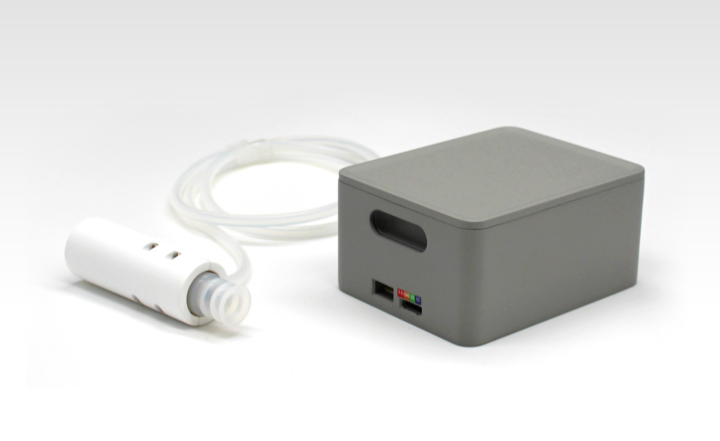
Specifications
| Name | myCobot Vertical Suction Pump V2.0 |
|---|---|
| Model | myCobot_suctionPump_V2.0_grey |
| Material | ABS injection molding |
| Color | White |
| Dimensions | Suction Pump Box: 72x52x37 Suction Pump End: 63x24.5x26.7 |
| Number of Suction Cups | 1 |
| Suction Cup Size | Diameter 20mm |
| Suction Weight | 150g |
| Power Source Equipment | Suction Pump Box |
| Fixing method | Lego connector |
| Control interface | IO control |
| Environment requirements | Normal temperature and pressure |
| Applicable equipment | ER myCobot 280 series, ER myPalletizer 260 series, ER mechArm 270 series, ER myBuddy 280 series |
Suction pump: Used for adsorbing objects
Introduction
Suction pump, that is, vacuum adsorption pump, has one suction nozzle and one exhaust nozzle. It has the advantages of simple structure, small size, easy to use, low noise, and good self-priming ability. By controlling the suction pump kit as the end effector of the robot arm, the function of adsorbing objects is performed.
Suction pump accessories: power cord x1, DuPont line x10, one-input and two-output connection line x1, Lego technology parts x several
Working principle
- When sucking objects: the air pump starts to suck air and adsorb objects and then stops, and there will be no leakage in a short time.
- When putting down the object: the electronic valve starts, the air release valve opens, and air enters the vacuum suction cup to separate the sucked object.
Applicable objects
- Paper/plastic sheets
- Flat and smooth objects
- Cards, etc.
Installation and use
- Check whether the accessories package is complete: Lego connector, Dupont wire, pump
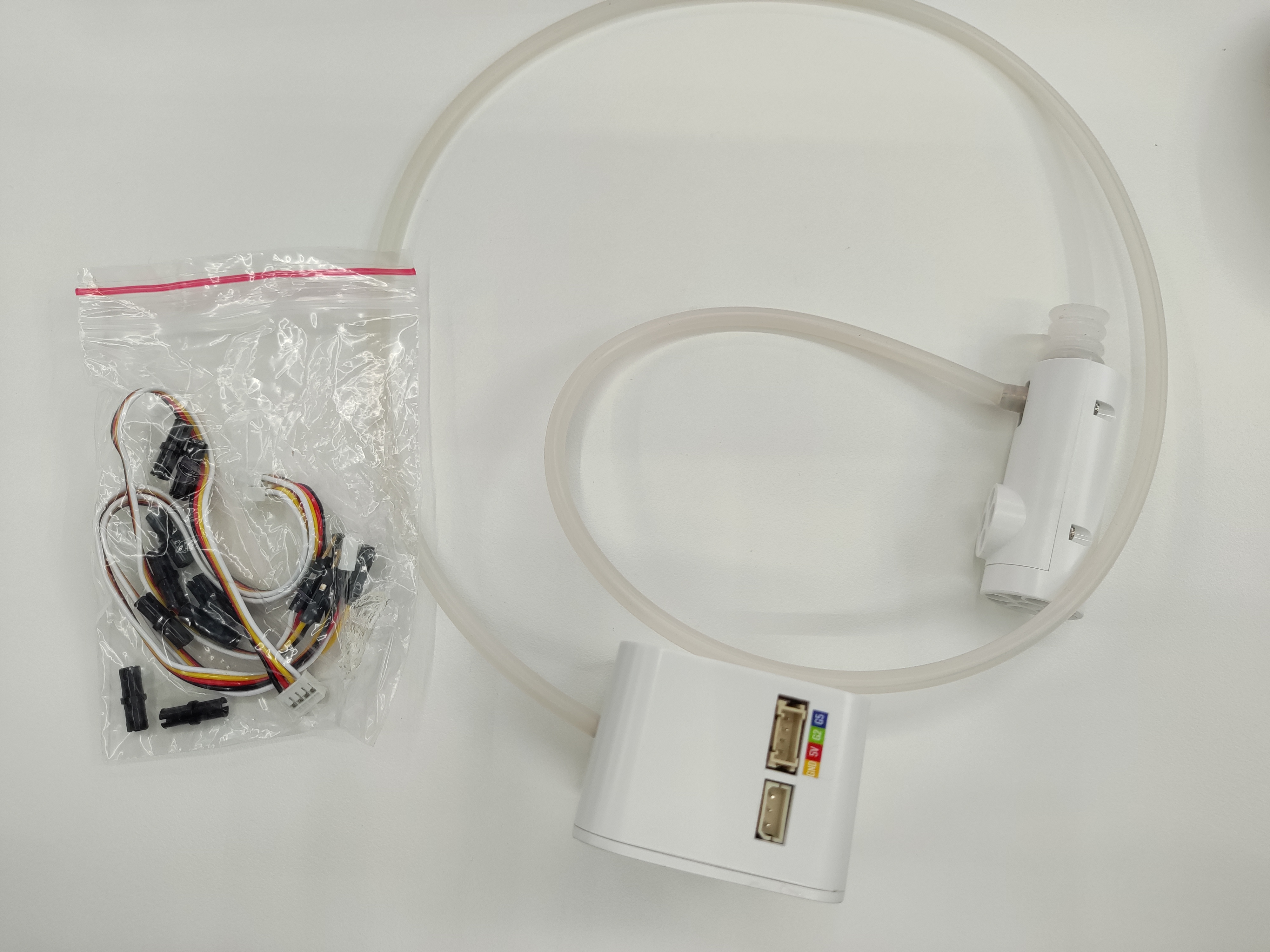
Pump installation:
Structural installation
Insert the Lego connector into the reserved socket on the pump:
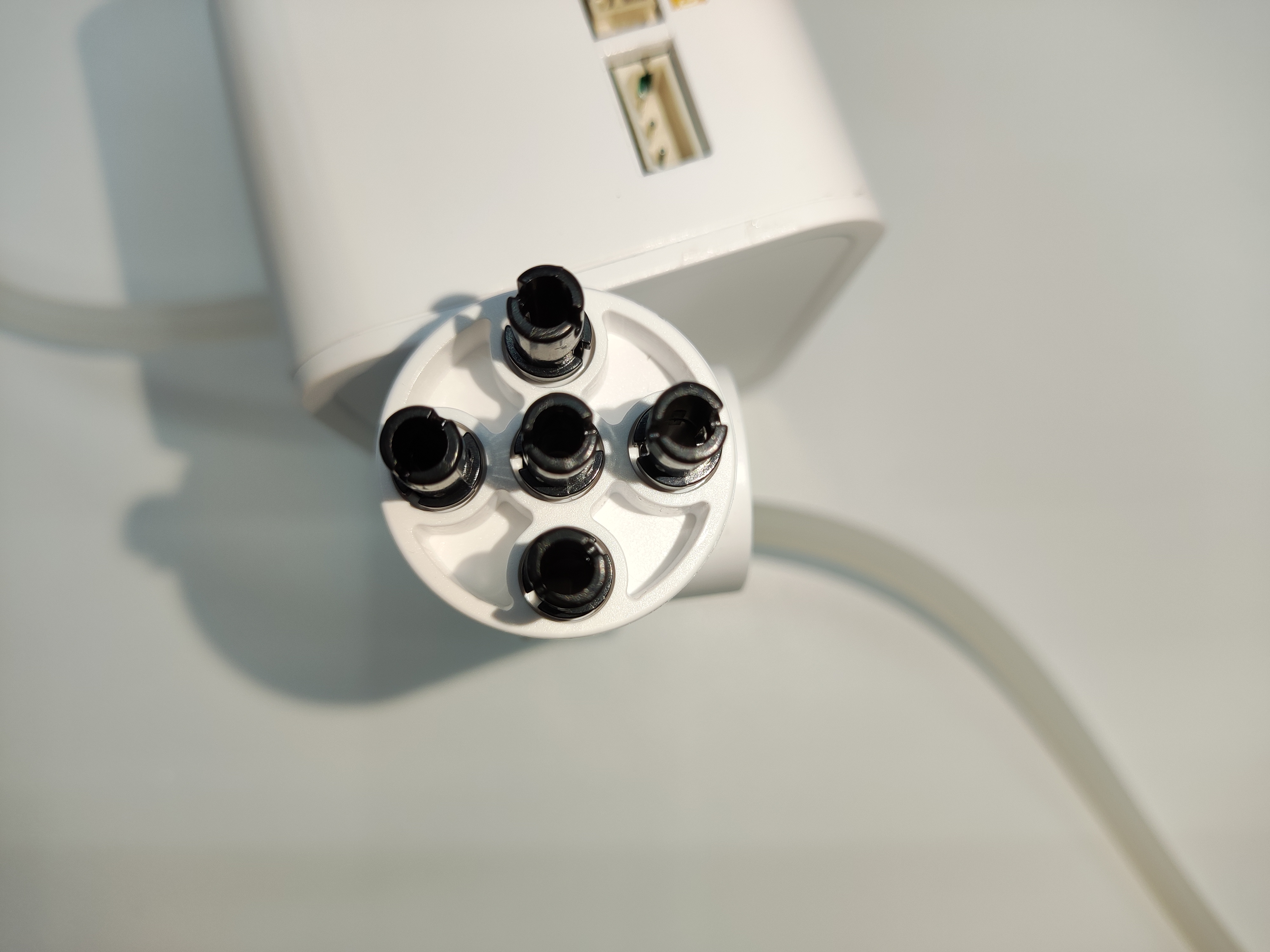
Align the pump with the connector plugged in to the jack at the end of the robot arm and insert it:
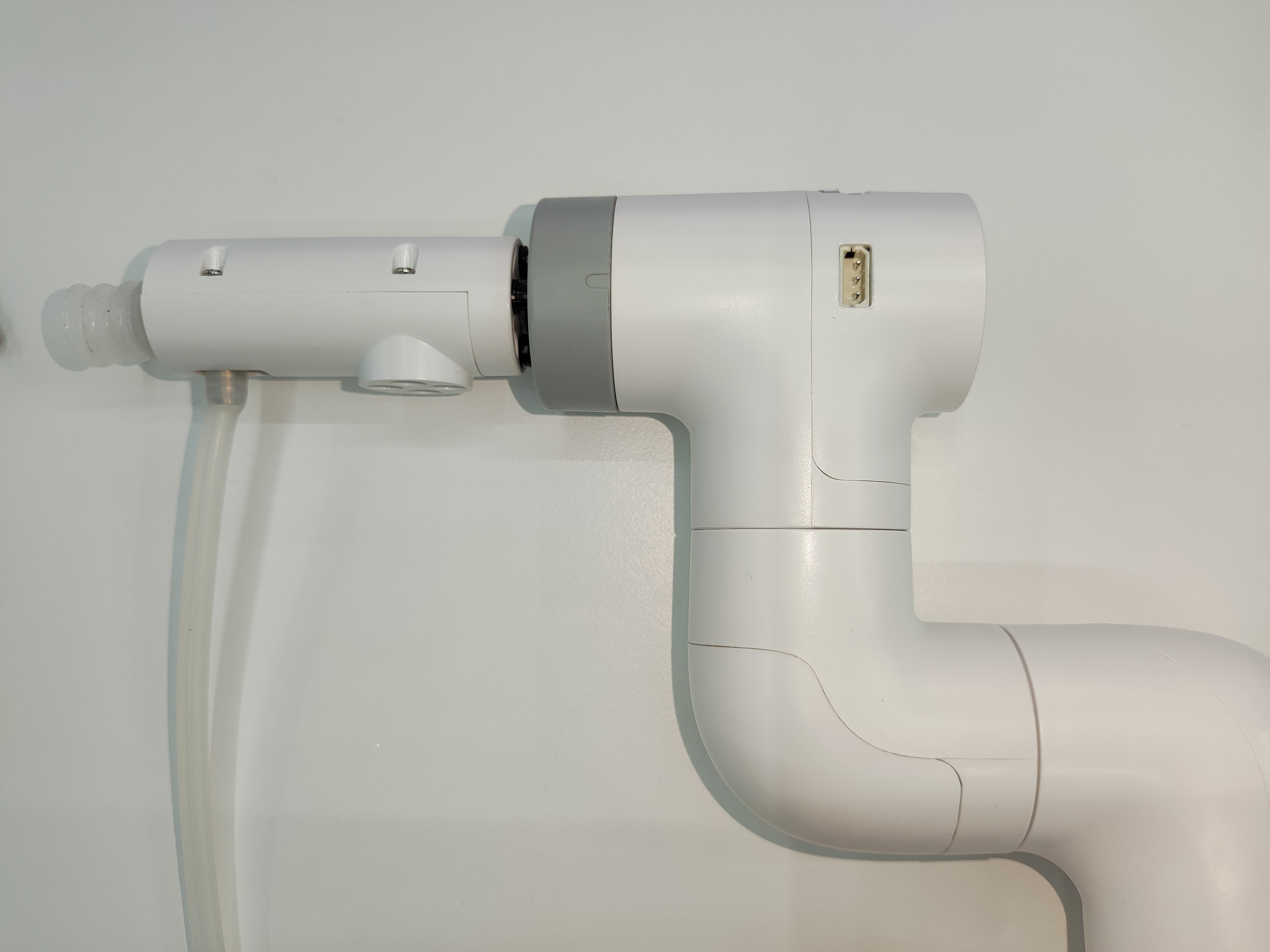
Electrical connection
Select the male-female DuPont wire and insert the female end into the socket marked with pins on the suction pump box:
Male-female DuPont wire:
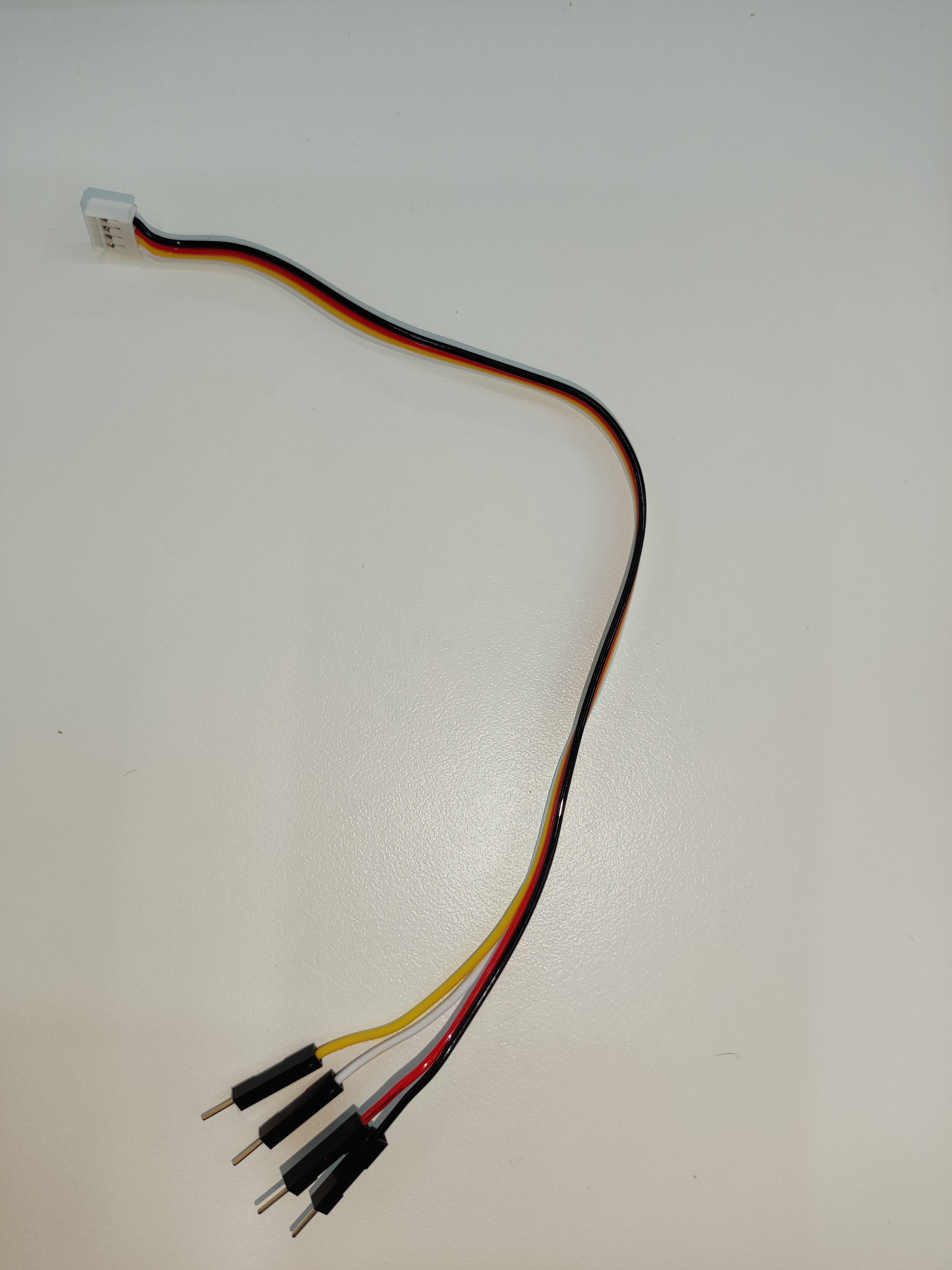
Note the correspondence between the DuPont wire color and the pin in the figure:
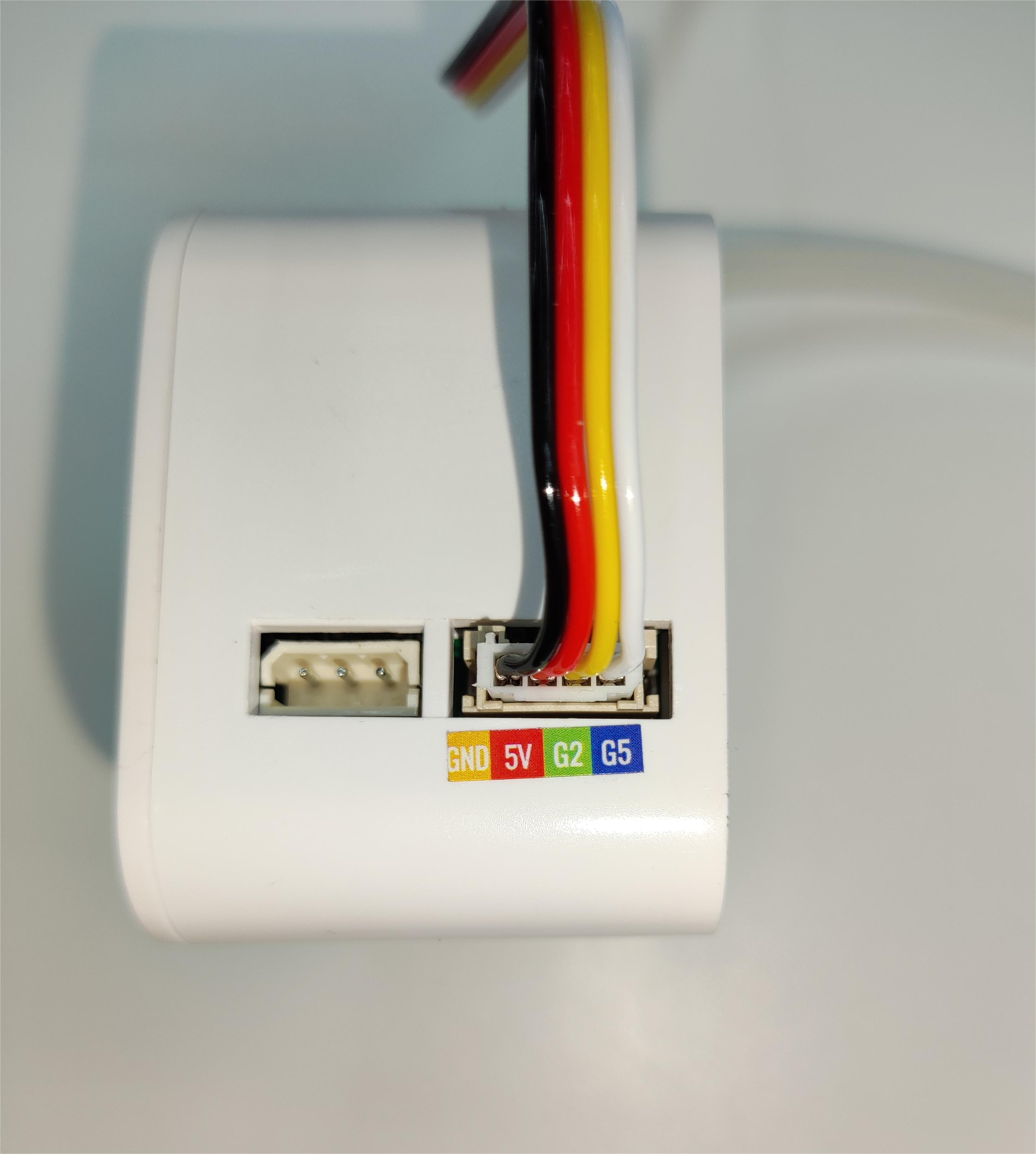
Insert the male end into the pin of the robot arm base according to the given correspondence:
280 PI wiring method
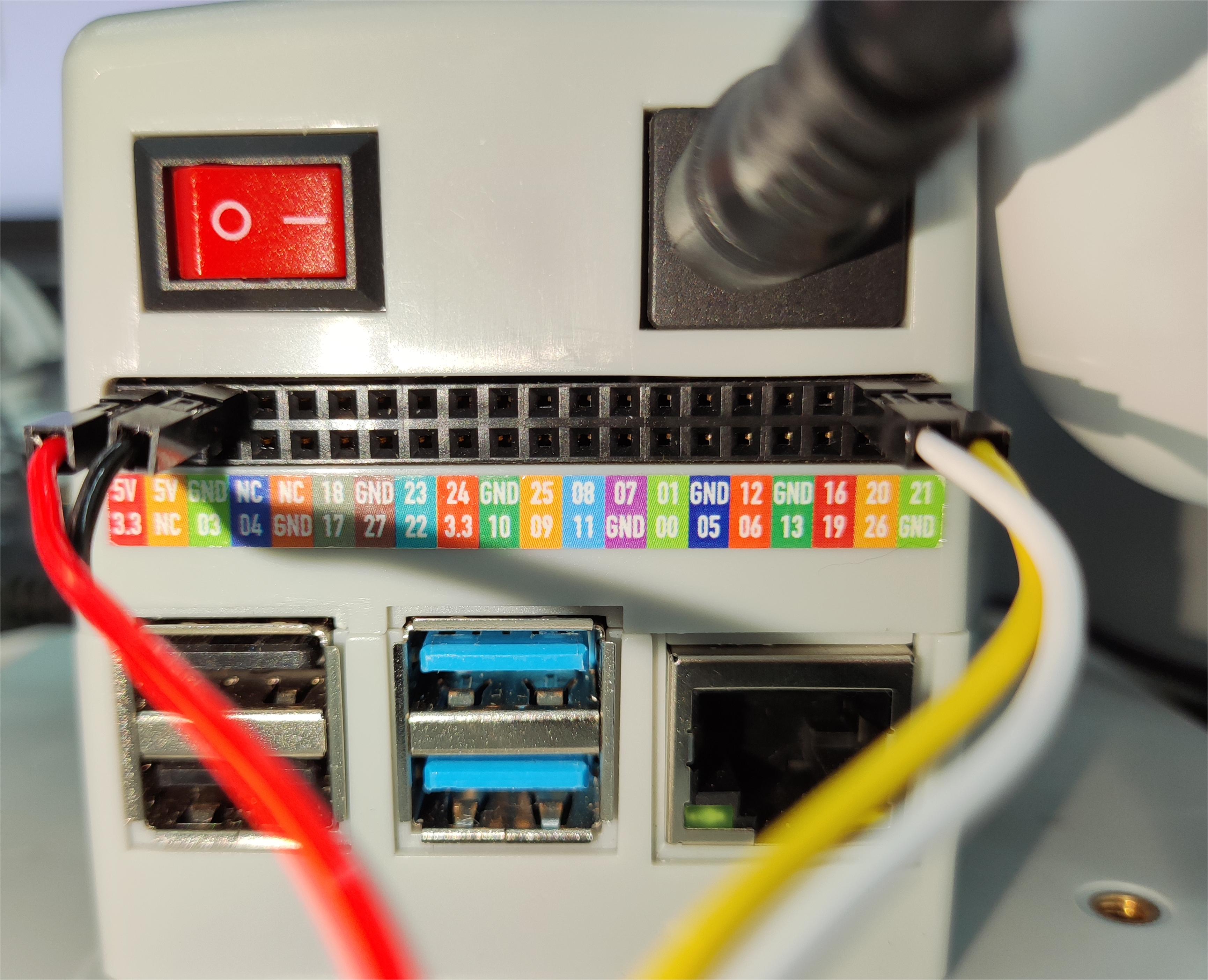
The left side is the suction pump pin, and the right side is the robot arm pin GND -> GND 5V -> 5V G2 -> 21 G5 -> 20
280 M5 wiring method
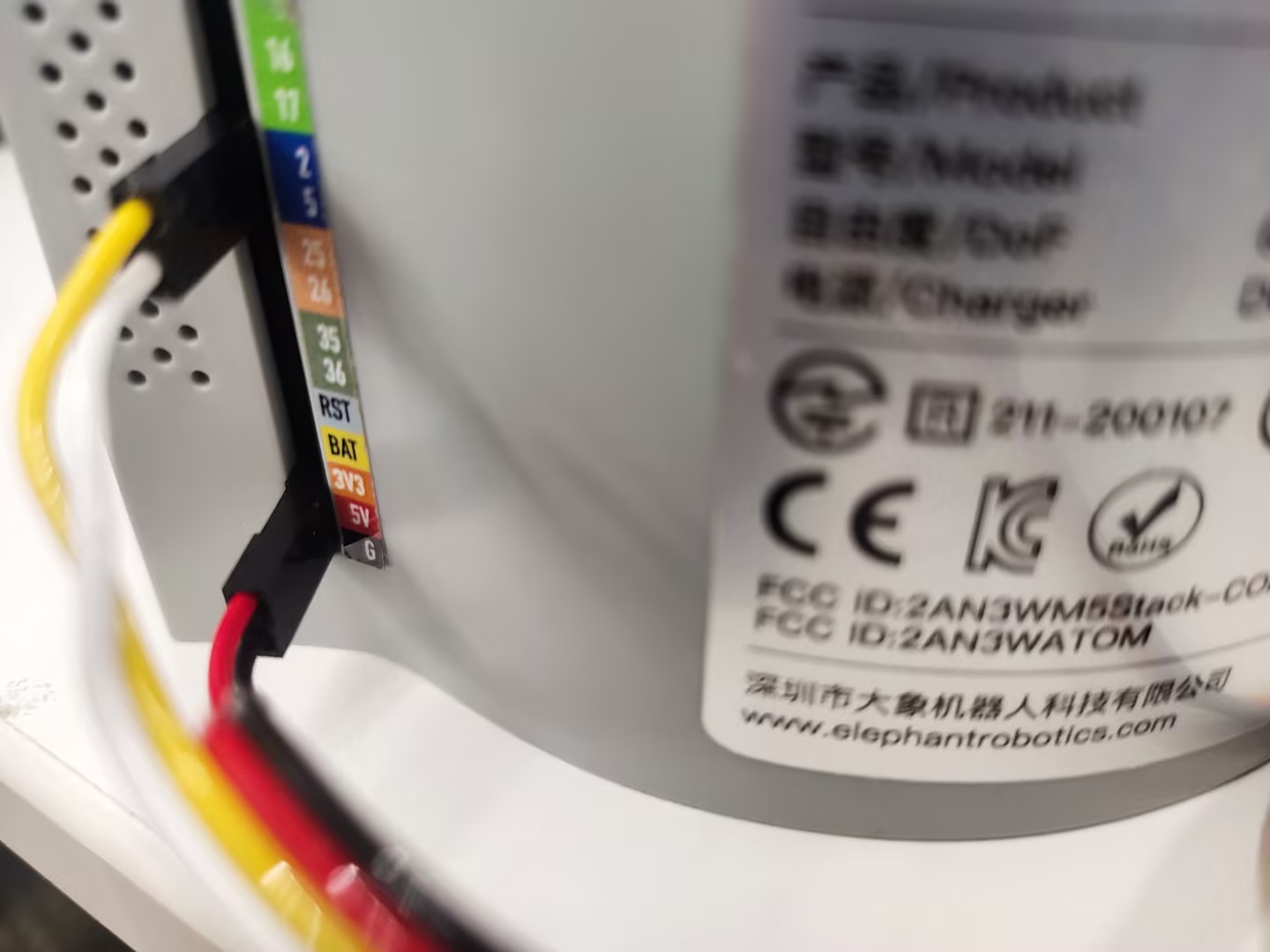
The left side is the suction pump pin, and the right side is the robot arm pin GND -> GND 5V -> 5V G2 -> 2 G5 -> 5
python programming control
- 280-Pi version
from pymycobot import MyCobot280
from pymycobot import PI_PORT, PI_BAUD # When using the Raspberry Pi version of mycobot, you can reference these two variables to initialize MyCobot280
import time
import RPi.GPIO as GPIO
# Initialize a MyCobot280 object
mc = MyCobot280(PI_PORT, PI_BAUD)
# Initialization
GPIO.setmode(GPIO.BCM)
# Pins 20/21 control the solenoid valve and the exhaust valve respectively
GPIO.setup(20, GPIO.OUT)
GPIO.setup(21, GPIO.OUT)
# Turn on the pump
def pump_on():
# Turn on the solenoid valve
GPIO.output(20,0)
# Stop the pump
def pump_off():
# Turn off the solenoid valve
GPIO.output(20,1)
time.sleep(0.05)
# Open the exhaust valve
GPIO.output(21,0)
time.sleep(1)
GPIO.output(21,1)
time.sleep(0.05)
pump_off()
time.sleep(3)
pump_on()
time.sleep(3)
pump_off()
time.sleep(3)
GPIO.cleanup() # Release the pin channel
- 280-M5 version
from pymycobot import MyCobot280
import time
# Initialize a MyCobot280 object
mc = MyCobot280("COM3", 115200)
# Turn on the suction pump
def pump_on():
# Open the solenoid valve
mc.set_basic_output(5, 0)
time.sleep(0.05)
# Stop the suction pump
def pump_off():
# Close the solenoid valve
mc.set_basic_output(5, 1) # The exhaust valve starts working
time.sleep(0.05)
mc.set_basic_output(2, 0)
time.sleep(1)
mc.set_basic_output(2, 1)
time.sleep(0.05)
pump_off()
time.sleep(3)
pump_on()
time.sleep(3)
pump_off()
time.sleep(3)